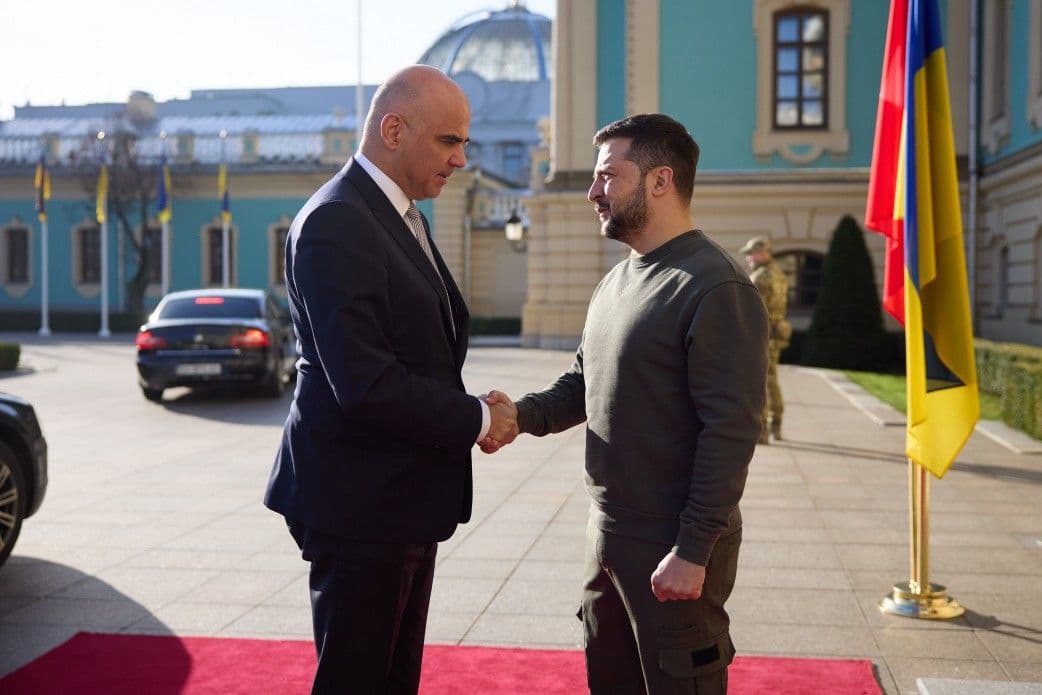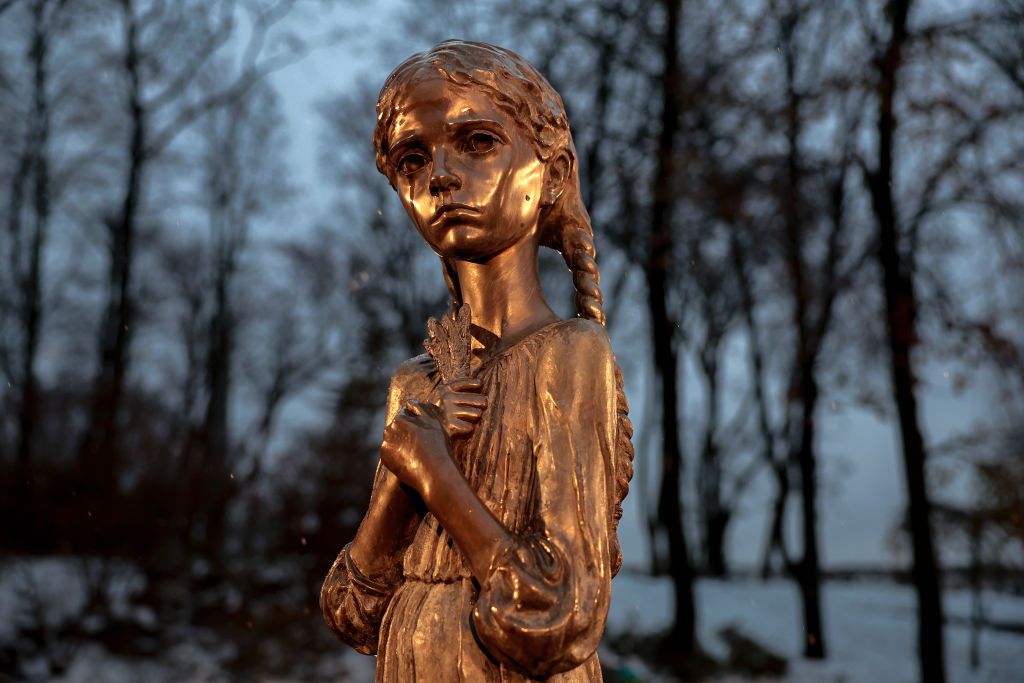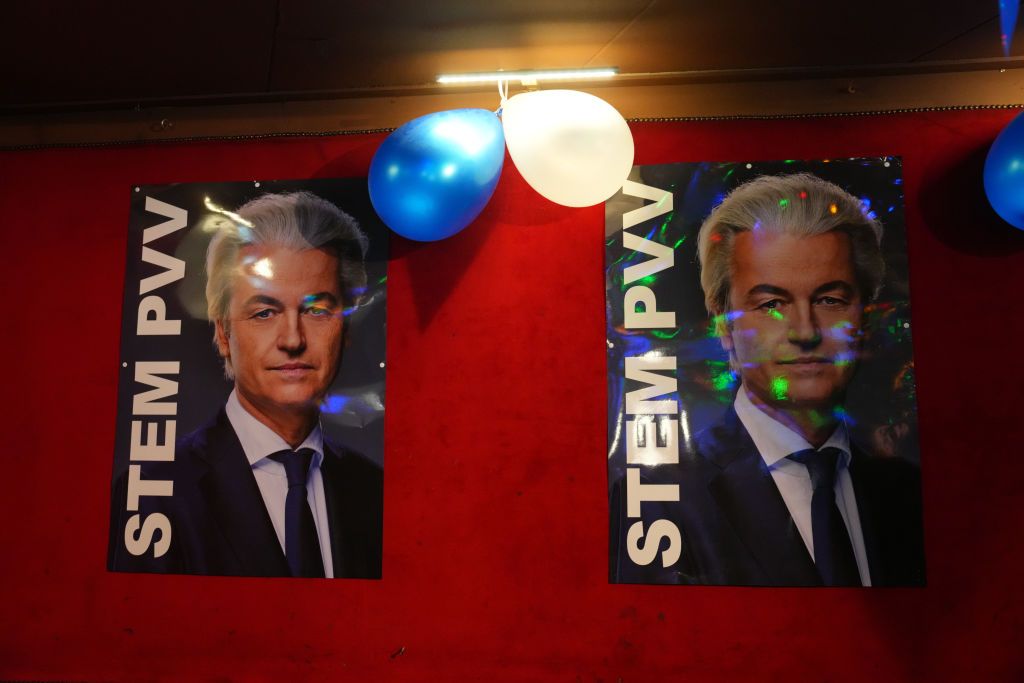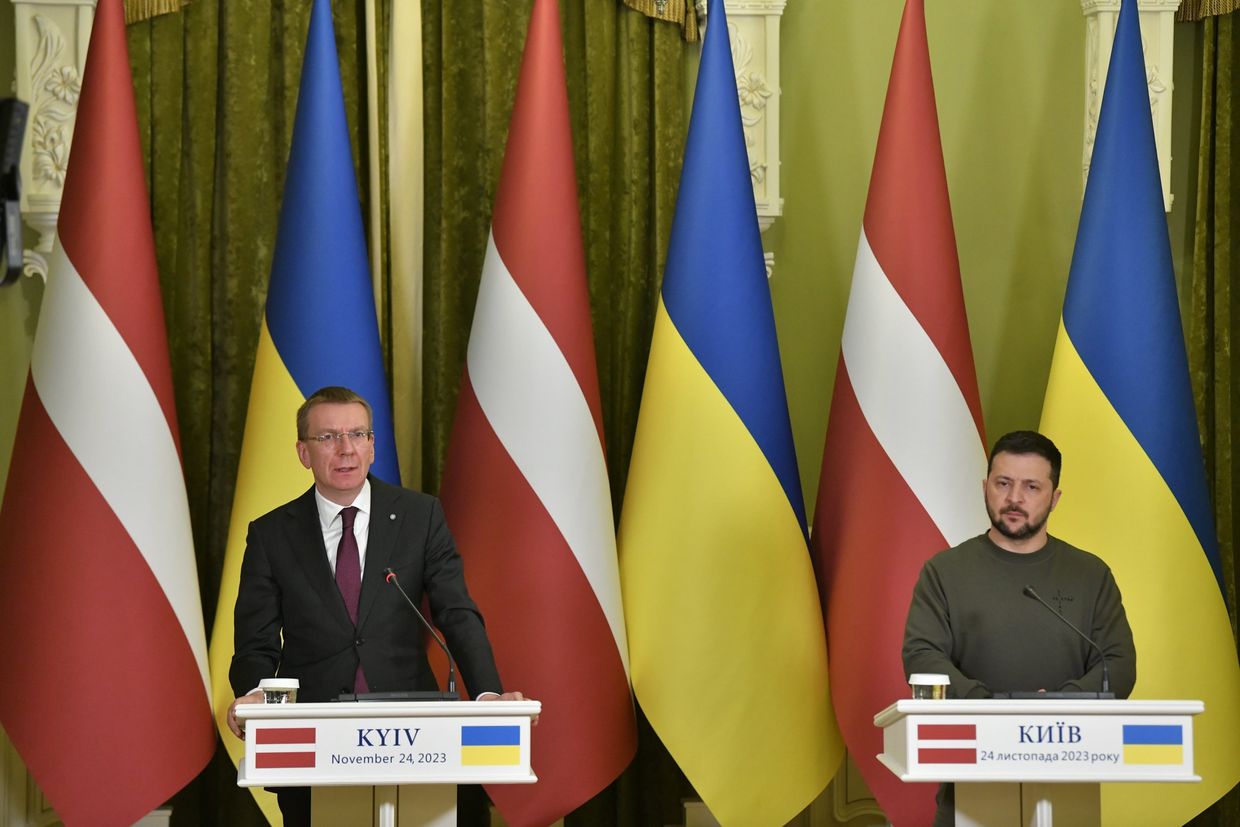Zelensky meets Swiss president in Kyiv

President Volodymyr Zelensky and his Swiss counterpart Alain Berset met in Kyiv on Nov. 25, discussing the use of frozen Russian assets to aid Ukraine and Switzerland's role in implementing Zelensky's peace formula, among other things.
"It is a powerful message for Ukrainians all over the world that you have decided to visit Ukraine on a special day in our history for all our families - the 90th anniversary of the Holodomor," Zelensky told Berset, as cited by Ukraine's Presidential Office.
Berset arrived in Kyiv early on Nov. 25, just after Russia launched the largest drone attack on the Ukrainian capital since the start of the full-scale invasion.
Except for meeting Zelensky, Berset has participated in the International Summit on Food Security, which coincided with the Holodomor Memorial Day.
The Holodomor, a man-made famine that took place between 1932-33, occurred during Joseph Stalin's reign over the Soviet Union and caused an estimated 3.5 to 5 million Ukrainian deaths.
Zelensky said he hoped the new Swiss parliament would recognize the Holodomor as a genocide of the Ukrainian people, a step taken by around 30 countries so far.
Switzerland's parliamentary elections in October resulted in the populist, right-wing Swiss People's Party winning the most seats. Members of the party boycotted Zelensky's speech to the Swiss parliament on June 15, claiming it violated the country's tradition of neutrality.
At the food security summit, Berset announced Switzerland would contribute three million francs ($3.4 million) to the World Food Programme to help those affected by the food crisis caused by Russia's full-scale war against Ukraine.
Switzerland will also send ten more ambulances, seven fire engines, including a used one, and other firefighting equipment to Ukraine, according to the Swiss government.
At the Nov. 25 meeting, Zelensky thanked Berset for Switzerland's "significant" humanitarian aid for Ukraine, including assistance in restoring critical infrastructure.
Switzerland plans to host the International Donor Conference on Humanitarian Demining in Ukraine next year after committing about $113 million to such efforts in September.
At the same time, Switzerland doesn't provide Ukraine with military aid due to its long-standing neutrality policy, and its parliament has repeatedly voted against proposals to amend the rules regarding the re-export of Swiss-made weapons to Ukraine.
The country also blocked the transfer of Swiss-made Leopard 1 tanks from Italy to Ukraine in June.















